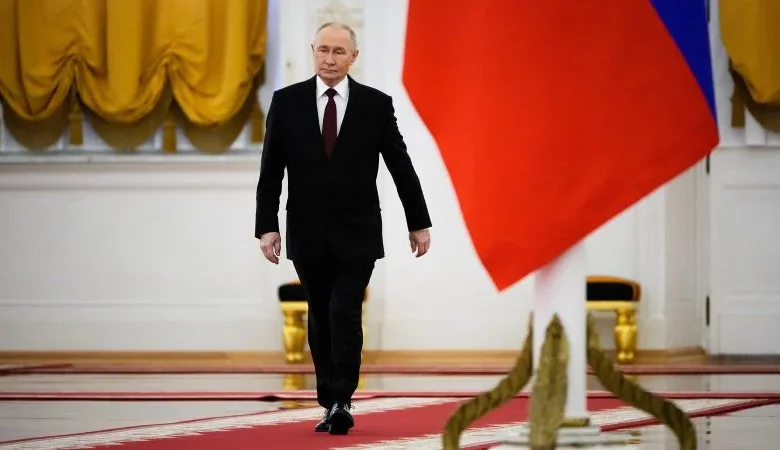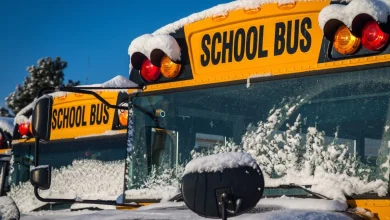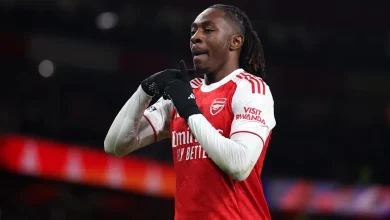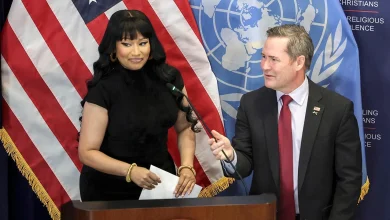Putin is playing Trump for time. The 28-point peace plan plays into his hands

After the shock and confusion surrounding the leak of a 28-point peace plan containing some of Russia’s most maximalist demands, and the marathon weekend talks to revise them, the US and Ukraine struck a similarly cautious, yet hopeful tone Tuesday.
“There are a few delicate, but not insurmountable, details that must be sorted out,” wrote White House press secretary Karoline Leavitt on X.
“Our delegations reached a common understanding on the core terms of the agreement discussed in Geneva,” was the assessment of lead Ukrainian negotiator Rustem Umerov.
In other words, there’s more work to be done – and likely on the most important parts of the deal. But getting the US and Ukraine to agree is not the most difficult part of this. Getting Russia to sign onto any compromises, when it has spent the past few days signaling it will reject any revised deal outright, seems at this stage, almost impossible. And yet, Russia does want the US to keep trying.
Russia’s President Vladimir Putin said Monday he believes the 28-point peace plan, which would among other things require Ukraine to withdraw from territory it still controls, and commit to never joining NATO, “could form the basis for a final peace settlement.” He made those comments the day after the US and Ukraine made a number of key revisions to the document at talks in Geneva.
On Tuesday, Russia’s Foreign Minister Sergey Lavrov fleshed out that position, saying that the 28-point plan was “based on understandings reached in Anchorage,” where the US and Russian presidents met in August. He added that Russia hadn’t received the revised document yet but “if the spirit and letter of Anchorage are lost in the key understandings we have documented, then of course the situation will be fundamentally different.”
And Russia is not just putting its foot down when it comes to incorporating any Ukrainian demands into a peace proposal. It has also signaled it wants Europe cut out of the negotiating process.
On Monday, top Kremlin aide Yury Ushakov described Europe’s counterproposal to the 28-point peace plan as “completely unconstructive.” Lavrov went even further Tuesday, with a historical tirade arguing that European efforts to mediate the Minsk accords back in 2014 disqualify it from playing a role now.
“You had your chances, guys. You didn’t make sure of those chances, you simply failed,” he said. The Washington-based Institute for the Study of War argued Russian officials were accusing Europe of undermining the peace process “likely in an effort to deflect from Russia’s own rejection of the deal.” Using this moment to emphasize divisions within the NATO alliance may be another convenient side-effect.
Time is not an infinite commodity on either side of this war, though Russia likely has more to play with than Ukraine. On Monday night, Russia launched what the UN Human Rights Monitoring Mission in Ukraine said was its seventh widespread attack on Ukraine’s energy facilities in the past two months. The European Commission estimated last week, according to Reuters, that Ukraine will need more than 135 billion euros ($156 billion) over the next two years to survive, if the war ends next year. And Russia is ramping up the pressure along the front lines, straining Ukraine’s increasingly urgent manpower crisis.
And yet, Russian air defenses were also activated overnight into Tuesday, shooting down almost 250 Ukrainian drones, according to the Russian Ministry of Defense, one of the biggest assaults of the war so far.
Novorossiysk, a key oil export hub and now headquarters of Russia’s Black Sea fleet, was targeted for the second time this month, part of an accelerating long-range drone campaign against military and energy facilities that Ukraine’s sanctions commissioner has described as “sanctions-by-force.”
Russia’s oil and gas revenues for the first 10 months of the year are down more than 20% compared to last year. And US sanctions on Russia’s biggest oil companies also officially came into force on Friday – the first new measures of US President Donald Trump’s second term.
And that may explain in part, argued Orysia Lutsevych, deputy director of the Russia-Eurasia program at Chatham House, why Russia is banking on slow-balling this new diplomatic push by the US, while making Trump believe it is still engaged.
“Putin plays Trump for time,” she wrote. “His goals are to impede the enforcement of oil sanctions that came into force on November 21, 2025, and to delay the adoption of the secondary sanctions bill currently at the US House of Representatives.”
Lavrov almost seemed to confirm this strategy Tuesday, while acknowledging it comes with risks. “We are not rushing our American colleagues,” he said. “We waited a very long time after Anchorage, spoke to them, simply reminded them that we are committed to those understandings … the extent to which they will be able to withstand attempts to lead them astray, we don’t yet know.”





